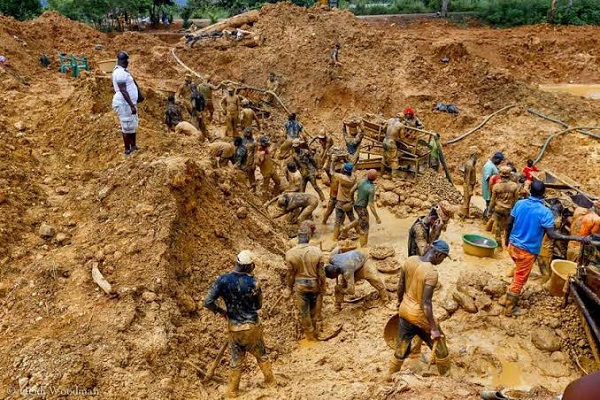Stakeholders on the platform of the Health of Mother Earth Foundation (HOMEF) are worried about the consequences of years of unchecked and inadequately monitored mineral extraction in Nigeria.
They are concerned that the ugly development poses great ecological challenges to Nigeria. Nnimmo Bassey, the director, Health of Mother Earth Foundation gave expression to this concern in his opening remarks at the maiden edition of the Nigeria Socio-Ecological Alternative Convergence.
According to Bassey “Years of unchecked and inadequately monitored mineral extraction, deliberate destruction of the environment in the pursuit of urbanisation and industrialization, ineffective policy making and enforcement, and the growing consequences of climate change have all come together to pose grave ecological challenges to our nation. Across every area, ecosystems are declining, communities are facing grave danger, and the future is increasingly uncertain.”
He stated that in 11 states of Nigeria, “we see increasing spates of drought and desertification that disrupt fishing, farming and herding livelihoods, driving a significant number of the population down the poverty ladder.
The environmental activists noted that the challenge has also resulted in severe health, sanitation and nutrition risks. The overall poverty and uncertainty engendered by drought-induced crop failures and water shortages force rural populations to migrate, triggering conflicts and creating socio-economic challenges.”
Bassey quoted official government reports stating that the 2022 floods displaced over 1.4 million people, killed over 603 people, injured more than 2,400 people, destroyed 82,035 houses and inundated 332,327 hectares of land. He concluded that “The estimated economic loss occasioned by the flood was put at $9.12 billion or N4.2trillion.”
The environmental activist noted that elsewhere in the country, floods have become a near yearly occurrence. Since 2012, the pattern of severe flooding has persisted, with major incidents occurring almost annually. These floods are often attributed to heavy and prolonged rainfall, poor urban drainage systems, deforestation, and the release of water from dams.
He further quoted the United Nations, which states that “Nigeria has the world’s highest and fastest rate of deforestation, with an estimated 3.7% of its forests destroyed each year. Nigeria’s forest cover has drastically reduced from about 40% in the 1960s to less than 10%. With the increasing spate of deforestation, the scenario is much worse today. Deforestation threatens biodiversity, disrupt community livelihoods, threaten wildlife and contributes to climate changes”
He added that the Nigeria Socio Ecological Alternatives Convergence had been co-created with civil society organisations, frontline communities, activists and academics as a space for thinking, planning and acting to drive an alternative ecological blueprint for Nigeria- an alternative ecological approach that respects the right of mother earth, and protects the planet and its people.












